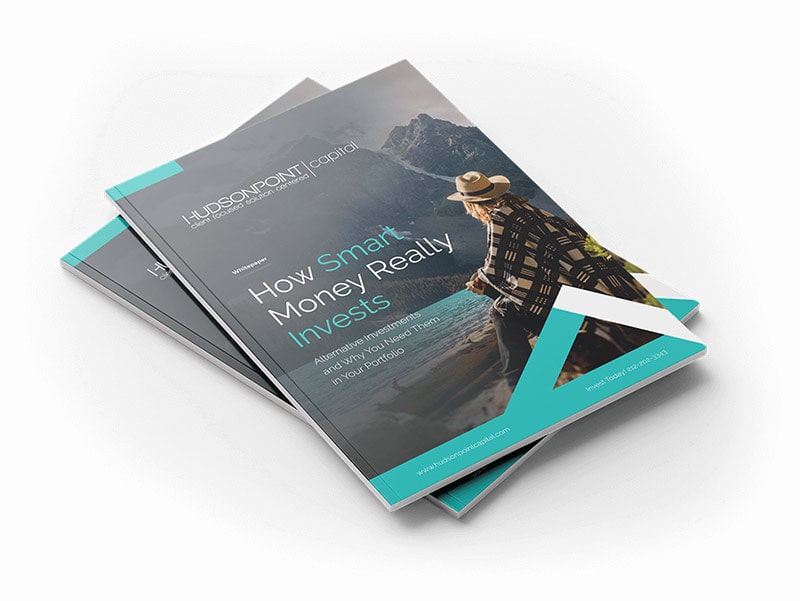Next Article
Identify Real Estate Syndication Companies For Your Needs

When you invest in alternative assets, you invest in non-traditional methods that include real estate, hedge funds, private equity, art, and other collectibles, and even cryptocurrency. Any investment that is not in stocks, bonds, or equities is generally considered an alternative.
But there are significant differences between traditional and alternative investments that you should understand. These differences pose a variety of different risks. Understanding these risks can help you make more informed decisions about where to invest your money.
This article covers eight risks that you should consider before investing your money in alternative assets.
There are a lot of reasons for the complexity of alternative investing. The assets involved in alternative investments are much more challenging to evaluate and are often illiquid. Not only that, but you also have to have an in-depth understanding of the type of alternative investment you’re putting your money into.
For instance, if you plan to invest in real estate, you obviously need to understand the real estate market, but also tenant laws and property management.
Alternative investments also have more complicated structures. Many alternative investments involve more than one investor and require a partnership agreement, liability agreements, and other paperwork.
Because of the complex nature of the investments and the amount of money tied up, it’s not easy to buy and sell in a short time span. This is what is called liquidity risk—alternative investments are generally considered illiquid. Before you can cash out on an alternative asset, it needs to be given a value and have its ownership transferred.
However, the assets that are involved in these transactions are not easily valued. Venture funds, real estate syndications, and pre-IPOs are three examples of this. You usually don’t see quick ROIs when you invest in these assets.
The process of “cashing out” on these investments can be seriously illiquid—taking anywhere from a couple of weeks to a few months depending on the type of transaction. Real estate transactions, for example, generally take a minimum of six weeks to close on.
Therefore, alternative investing is best if you’re looking for long-term ROI opportunities.
With traditional investment routes, you can invest as little or as much as you’d like. You could even invest as little as $5 in stock for a company you think has good growth potential. Conversely, when you invest in alternative assets, there are higher minimum investment requirements involved.
Some cryptocurrency sites allow you to invest in smaller amounts, but for high-value assets, you should expect to invest tens of thousands of dollars, at least. And often, these transactions are worth millions of dollars.
Of course, the possibility of an excellent ROI makes it worth the higher minimum monetary requirements for many investors.
The fees associated with alternative investments are typically higher than those of traditional investments. A common fee structure on alternative investments is the two and twenty structure. Conversely, when you invest in the stock market, you are typically only charged one annual or custodial fee.
Under this structure, there’s a 2% annual fee on the investment funds and investment fund managers take 20% of any gains made on it. In some cases, this makes sense for the investor, but you have to consider what your profits will be with these fees imposed. This kind of fee structure makes sense for investments that expect to see large returns.
When you invest in stocks or bonds, you’re able to invest in the marketplace known as the stock market, where you can buy and sell equities. However, there’s no such market for alternative investments (at least, not in the traditional sense of the term).
This can make it harder to find opportunities that work for you; it requires more work on your part to do more research and find a company or partner to work with. You want to work with someone who understands your investment goals and has opportunities to help you meet them.
There are some applications and websites that make it easier to find these kinds of investments. These platforms are specific for the different types of alternative investments. For example, Masterworks.io is a platform for investors who want to invest in art, and Fundrise.com focuses on real estate investment opportunities.
Not only is there no marketplace for alternative investments, but there is also a lack of regulations on their securities. While the vehicles for alternative investments are covered by the U.S. Security and Exchange Commissions, the securities themselves do not have to be registered with the SEC.
This lack of regulation poses a higher risk than traditional investments. Alternative investments are more often the subject of scams and frauds (like mortgage fraud) due to fewer regulations.
When you invest traditionally, you’re most likely going to invest in companies that have long histories of profitability and revenue. You can analyze the level of risk involved with investing in the company.
However, most alternative investments don’t have historical data to analyze, which makes them hard to value. This is especially true of collector’s items like art and sports cards, where it’s hard to track the history.
When you invest in alternative assets, it’s important to find the company, investment strategy, and opportunity that aligns with your financial goals. And when you invest in alternatives, finding an opportunity isn’t as easy as it is when you invest traditionally.
When you invest traditionally, you can go to JP Morgan, Wells Fargo, or a similar institution and put as much or as little of your money into the stock market as you want. But there’s no stock market for alternative investments; you have to research and network to find the right companies to work with.
Start by determining the kind of asset you want to invest in. Then, do research and talk to your peers or other investors to find companies that manage those kinds of assets.
Start your alternative investment journey on the right foot with proper professional investment guidance from HUDSONPOINT capital focused on building your wealth. If you’re ready schedule a call with us to get started.


We’ll find the right investment
solutions to meet your financial goals
Discover the art of wealth creation through alternative investments amidst market fluctuations
Get Started
or call us toll free at
888-544-5244